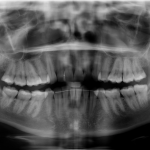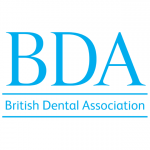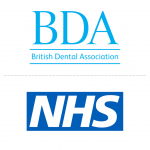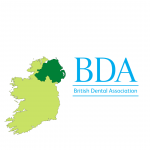Twenty individuals are being celebrated in the latest round of the prestigious BDA Honours and Awards, for their outstanding achievements, their commitment to the BDA, and their work for the dental profession.
From all sections of the profession, general practice, through to community and hospital dentistry, and across the four nations, the BDA is proud to honour these people.
The Association also recognises the commitment and dedication of the BDA staff to our members and the profession during the COVID-19 crisis, and has awarded a Certificate of Merit for Services to the Association.
Roz McMullan Chair of the BDA’s Honours and Awards Committee, said:
“I am delighted to see these people honoured for their hard work and commitment to dentistry.
“Through these times of immense challenge and change, we are proud to be able to highlight the work of those who have gone above and beyond, making our profession better. We are proud to showcase those who have supported our causes, gone over and above for the profession, and/or given exemplary patient care.
“During 2021/2, we want to find dentists who have shown a commitment to advancing dentistry. We strongly encourage nominations from all areas of the profession – please consider putting forward a colleague/s who you think deserve recognition for what they do.”
You can find out more and nominate via Honours and Awards. The deadline for the next round of nominations is 27 May 2022. Nominations for the Joy Harrild Award for Young Dentists should be submitted by 29 April 2022.
Fellowship Medal
Dr Colette Bridgman, former Wales Chief Dental Officer and specialist in dental public health
In the last five years Dr Bridgman has succeeded in improving many aspects of dentistry and the oral health of the population in Wales, and in doing so she has on occasion taken bold steps to overcome institutional inertia, and latterly taken head-on the challenges caused by the pandemic. She made improvements by introducing electronic dental referrals across all specialities in Wales, as well as moving along the process of NHS General Dental Services contract reform, towards an alternative contract based on clinical need. She has taken calculated risks to navigate through the most challenging period in living memory to support the profession and serve the oral health needs of the population of Wales.
Laurie Jacobs, Deputy Chair East Midlands Branch and retired GDP
Laurie Jacobs has supported the dental profession for many years, at both a local and national level. As a representative on the BDA’s former Representative Body, he was diligent in taking concerns forward and provided clear and concise reports back to members. His friendly and approachable manner enables him to empathise and communicate effectively with all members of the dental team. Laurie had a keen commitment to post graduate education in the region and was involved in setting up the John Reeves Memorial Fund for support of post graduate education.
Dr Nigel Monaghan, Chair Wales Committee for Community Dentistry and consultant in public health and dental public health, Public Health Wales
Dr Nigel Monaghan has gained huge respect by all the members of the BDA Welsh Committees for his vast understanding of all things to do with dental public health. Nigel has provided great insight over the years regarding epidemiological studies of dental caries in children and adults and how the data relate to public health measures such as Designed to Smile. Nigel is not only highly esteemed for his vast academic understanding but also his keen sense of politics when discussing any aspect of dental policy. Nigel gave frequent commentary on the covid situation last year providing dentists with considerable insights to the complex unfolding of pandemic conditions.
Dr Graham Smith, Chair Scottish Public Dental Services Committee and consultant oral and maxillofacial surgeon
Dr Graham Smith has been a member of the BDA since 2003 and has worked tirelessly to promote the interests of the dental profession both locally and nationally for the last 11 years. He has been a member of several Scottish Government committees and was involved with the Children and Young people (information sharing) (Scotland) Bill and the UK Government’s consultation on future healthcare regulation. He has engaged with the Chief Dental Officer (CDO) for Scotland, Scottish Government and health ministers to fight for oral health issues and the interests of Salaried Dental practitioners throughout Scotland. More recently he has led the Scottish Joint Negotiating Forum with the CDO and senior civil servants. He has also been responsible for setting up the Urgent Dental Care Centre in Portree, and was the sole dentist working in face-to-face dental care in the North West Highlands at the start of the pandemic.
Dr Sandra White, past national lead for dental public health at Public Health England
Across her career, Dr Sandra White has undertaken a huge range of work to advance the standing and status of the profession, gaining high regard and respect of fellow BDA members. In her role at PHE, her leadership in advocating the importance of epidemiological surveys and dental intelligence has been crucial in the continued existence of the key oral health studies. She has also been a powerful voice in support of water fluoridation and oral health improvement. Sandra continued to push the fluoridation agenda and undoubtedly played a key part in it featuring in the current UK Government’s public health agenda. Her previous clinical work in special care was also noteworthy, setting up services for those who were homeless, and providing domiciliary and sedation services from scratch and a general anaesthetic service. She has been an advocate of strong collaborative working on many important dental public health issues and has also played an active role in some key BDA projects, most recently working actively in 2020 on mental health and wellbeing, as well as our AMR summit in 2014.
Life Membership
Michael Cranfield, past Chair England Community Dental Service Committee and retired clinical director
Michael Cranfield has been a member of the BDA for over 30 years. He has made a substantial contribution to the BDA England Community Dental Services Committee (ECDSC) and to community dentistry. He was Chair of the BDA ECDSC for three years, working tirelessly to promote the needs of community dentists, the community dental service and its patients. He was also BDA CDS Group President in 2010. Throughout Michael’s outstanding dental career, he has shown dedication to his colleagues and actively promoted the needs of the Community Dental Services, with passion, drive and innovation. As Clinical Director of CDS CIC, this organisation was a key player in setting up multiple Urgent Dental Care Hubs (including clinically vulnerable and shielded patients and covid positive patients) to provide care during the COVID 19 pandemic, as well as continuing to provide care for CDS patients too
Allan Franklin, Chair, BDA East Lancashire/East Cheshire Branch and retired GDP
Allan Franklin has given outstanding service to the BDA’s Benevolent Fund and to dentistry. His long-term commitment to helping members of the profession is matched only by his dedicated service to the Association. Allan joined his local BDA Section after qualifying as a dentist and became Secretary. Through his hard work, commitment and resourcefulness, he became Chair and then served as President. In recent years Allan has revived the Branch and Section and is a highly regarded senior member of the Branch.
Professor David Hussey, Chair BDA Hospitals Group, Northern Ireland and Emeritus Professor, Queen’s University Belfast
Professor David Hussey has played a leading role in dentistry within Northern Ireland for over 30 years as a clinician, teacher and researcher. He has encouraged and mentored generations of undergraduate students at Queen’s University Belfast as well as leading postgraduate training as the Postgraduate Dental Dean for Northern Ireland for a decade. He was an active member of the BDA for 44 years and supported the Northern Ireland Branch throughout that time, culminating in his term as Branch President in 2017. During his career, David has promoted dentistry in Northern Ireland around the world and this is exemplified by the network of Queen’s University Belfast’s international alumni who trained at the School of Dentistry. The internationalisation of the School of Dentistry has been led by David and the excellent international reputation of the dental undergraduate programme is testament to his work.
Roll of Distinction
Maria Morgan, Senior Lecturer in Dental Public Health and Public Health Specialist, Public Health Wales
In 1997, when Maria Morgan started in dental public health, there was nothing in place in terms of a national approach to oral health information. She put in the foundations and now Wales has an effective oral health information service that is embedded in dental academia, thanks to her efforts. She is a prolific author of reports and papers and her work is highly respected and valued. Maria’s legacy to the dental profession is one of applied research and a pragmatic approach to dental public health, she was responsible for the coordination of, and reporting, on the successful Designed to Smile programme in Wales.
Penny Whitehead, BDA Head of Policy & Research
Penny Whitehead has provided exceptional service to the BDA, and to the profession, over a long and distinguished career. Penny’s integrity has shone through in all the roles she has performed for the Association. She was the first full-time adviser and was the backbone of the development of advisory services. In that role, she was committed to providing a high-quality service. Her involvement in the preparation of the first national advice to dentists on infection control in the 1980s was significant. When the ‘new contract’ came, Penny played a major role in helping dentists learn about new requirements and applying new regulations – she is an expert in the regulations and was instrumental in sorting out numerous disputes between dentists and Primary Care Trusts at the time. As Head of Policy and Research, she has led on many important research projects, most recently championing our work around mental health and wellbeing and racism. She has supported our policy and negotiating work, making a significant contribution particularly in the area of dental contract reform, always with the same level of dedication and commitment. Penny has also made a significant contribution to the BDA’s role in advising and representing members during the pandemic.
Certificate of Merit for Services to the Association
Tom Bysouth, past Chair Wales General Dental Practice Committee and GDP
Committee members in Wales have immense respect and admiration for all Tom Bysouth has done and contributed to dentistry, especially someone who is still early in his career. Tom was a most able Chair of WGDPC and has given commendable leadership to the profession. His constant communication and negotiation between all parties, LDCs, Health Boards, BDA members and Welsh Government has been hugely appreciated by all our colleagues. He was WGDPC’s member for RBEC and gave oral evidence to the Review Body for Doctors’ and Dentists’ Pay (DDRB) for the last four years. His work behind the scenes has been vast, and he has striven to keep us all informed, ensuring the best outcomes for the profession.
Fiona Gray, BDA Museum Volunteer and retired GDP
Fiona Gray started volunteering at the BDA Museum in 2011 and since then she has devoted one day a week to the museum. Her interest in art led her to research many of the oil paintings in the Museum’s collection, which revealed previously unknown valuable information about the artist and sitter. She produced a leaflet for visitors exploring their significance to art history and to dental history. More recently, Fiona researched the collections relating to the First World War and the BDA’s role in the formation of the RADC. The Dental Historian published her paper on BDA Honorary member R G Ash and his experience of military tribunals during the war. Her knowledge was an integral contribution to an exhibition commemorating the end of the First World War at the BDA, and her valuable contribution to enabling a loan to Hall Place, Bexley for a First World War exhibition including dental equipment.
Philip McLorinan, BDA Northern Ireland Branch and GDP/specialist lecturer in restorative dentistry
Philip McLorinan has been an active member in the BDA’s Northern Ireland Branch for many years. He can be relied on to provide a pragmatic approach to discussions and is never afraid to ensure the patient voice is not forgotten. Philip was one of the first dental practitioners in the Belfast area to volunteer to work in the Belfast Urgent Dental Care Centre (UDCC) during the pandemic. He is a part-time Special Lecturer in Restorative Dentistry at Queen’s University Belfast, fitting this around owning a busy general practice.
Sue Page, BDA North Western Branch Council Member and community dentist
Sue Page has made a huge contribution to the BDA North Western Branch, holding many roles over the years. She is a passionate advocate of the CDS and patient-centred care. As secretary of the Lancaster and Morecombe section, she organised an extensive programme of meetings each year. She has always been an enthusiastic participant in branch council meetings, offering her dedicated help and support.
Kiran Shankla, Chair BDA Reading Section, and GDP with a specialist interest in restorative dentistry
Kiran Shankla is not only a very skilled clinician but also a caring and popular one with her patients and staff alike. She has also been very active politically within the BDA, serving as Chair of the Reading Section. During her time as Chair, she put on a successful continuing professional development programme that was well attended throughout the 12-month programme. She is passionate about promoting dentistry to the next generation and has volunteered as a mentor for a social mobility charity to encourage disadvantaged A Level students apply for dentistry. She is also a STEM Ambassador for the Nuffield Foundation, which promotes careers in STEM, and will be promoting dentistry for the first time ever in this programme.
Tim Vernon, North Herts Section Treasurer and GDP and orthodontic specialist
Tim Vernon has made a profound contribution to the Section over many years. He has been the ‘go to’ person in North Herts on all things orthodontic. He has provided excellent advice and support to younger members of the profession in times of difficulty, with his calm and approachable manner. He has been a member of the Section for 26 years and has always kept a cheerful and supportive attitude.
Arabella Yelland, BDA West of Scotland Branch member and visiting GDP/clinical teaching fellow
Arabella Yelland is fully committed to her chosen profession and care of her patients. She continues to improve her knowledge to the benefit of patients, her training dentists and the undergraduate students in her charge. She has been the glue that holds together the BDA West of Scotland Branch for many years. She devotes so much of her time, both to the Branch and the BDA, being involved with the Ayrshire and Arran LDC, the Scottish Dental Vocational Training Scheme and as a Clinical Teaching Fellow at Glasgow Dental School. She is a role model to all her colleagues, but especially to younger dentists who she inspires with her leadership, commitment and dedication to improving patient care.
Certificate of Merit for Services to the Profession
Lauren Harrhy, BDA Principal Executive Committee member and GDP
Lauren Harrhy has served on numerous BDA committees in Wales and UK-wide, to promote the interests of dentists and their patients. She has significantly supported the work of WGDPC as Vice Chair and only stood down when she was elected to PEC. In recent years, Lauren has focused on the mental health support for the dental profession, by both providing insight to inform policy and setting up practical support. She has set up and governed charitable organisations for the sole purpose of providing mental health support to fellow professionals.
Sagar Shah, specialty dentist and clinical tutor in oral surgery
Sagar Shah worked as a DCT1 and Junior Clinical Fellow in Oral and Maxillofacial Surgery across hospitals in Nottingham and London providing inpatient and outpatient care, after qualifying. He also works as an associate in a mixed NHS practice. He is the London Regional Representative for the British Association of Oral Surgery and BDA committee member for Central Committee for Hospital Dental Services. At the start of the COVID-19 pandemic Sagar was seconded to NHS England to help in the national response. During this time, he was part of the authorship team for a national guidance document: ‘Redeploying the clinical dental workforce to support the NHS clinical delivery plan for COVID-19,’ which is published on the NHS England website. He has also worked with the BDA on matters relating to sustainable practice in dentistry.
Joy Harrild Award
Carly Fraser, North of Scotland Representative on Scottish Council and GDP
Carly Fraser has made an outstanding commitment to the BDA, her LDC and the BDA’s Scottish Council. She has shown exemplary initiative and leadership skills in organising various events and functions, going above and beyond to ensure they are a success. From March 2018 she has been the North of Scotland representative within the Scottish Council and been an active participant. At a practice level she ensures delivery of high-quality care to her patients, ensuring appropriate support and advice is given and colleagues are supported, going above and beyond when needed. She achieves ambitions, delivers excellence, supports people in working together to ensure a good service and everything she does is underpinned by compassionate care for those she works with.












